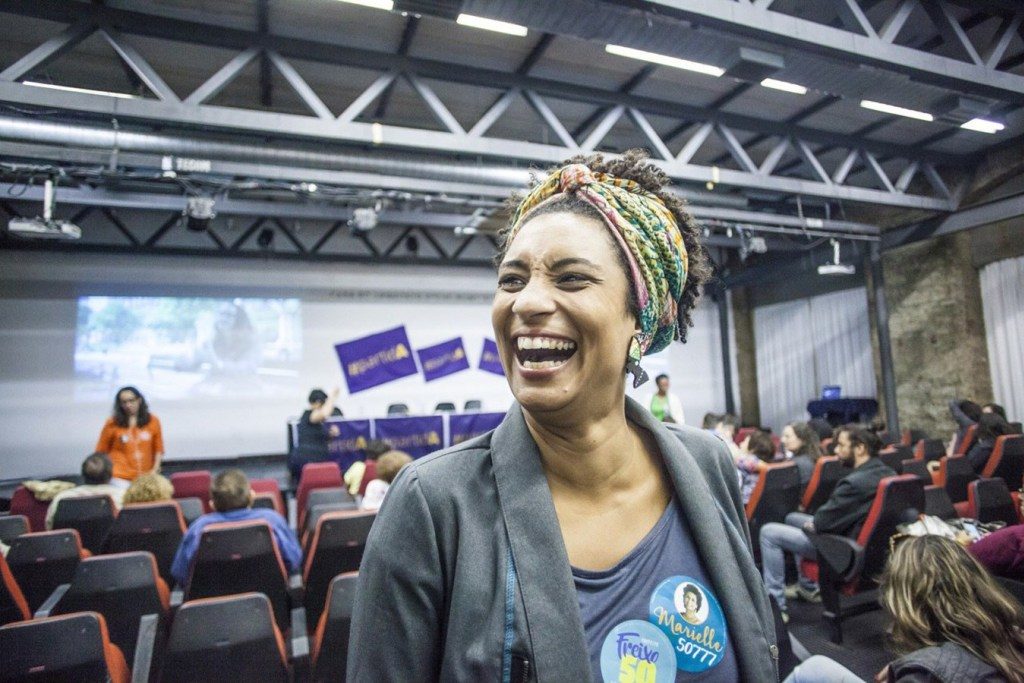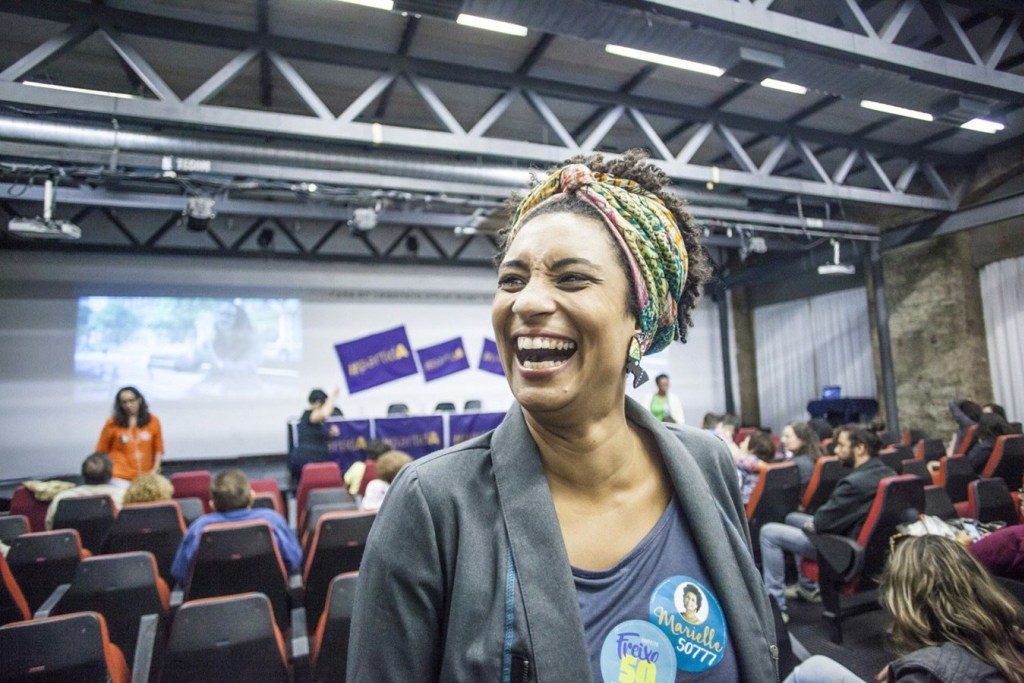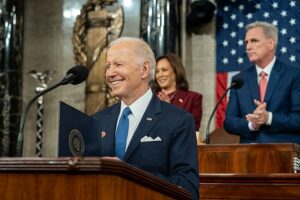Arrests in Marielle Franco’s Death a Blow to Bolsonaro’s Brazil, a Step Towards the Accountability She Fought For

Marcelo Freixo/Wikimedia Commons

Two ex-police officers were arrested in Rio de Janeiro on Tuesday in connection with former Brazilian Councilwoman Marielle Franco’s death, a monumental step toward justice and countering narratives about who is held accountable in Brazil’s justice system.
Ex-officers Ronnie Lessa and Elcio Vieira de Queiroz were arrested under suspicions that they carried out a shooting attack against the queer, black legislator. Notably, one of the officers lives in the same neighborhood as President Bolsonaro, and a photo surfaced of Bolsonaro and Queiroz embracing in front of a car.
The brutal slaying — which occurred after a black women’s empowerment event on March 14, 2018 — sparked waves of protests around Brazil and heightened the contentious relationship between activist groups and rising far-right populist ideology across the country. Many saw Franco’s death as representative of the government’s attacks on those who hold different opinions, queer Brazilians, women, and people of color, and as a preview to the upcoming presidency of Bolsonaro, an outspoken proponent of a militarized police force and documented racist.
The charges come at a critical time in Brazil’s political climate, as there has been continued outrage from activists looking for answers and justice. This anger is also folded into a nation dealing with extreme rates of crime and police killings. In 2016, Brazil suffered 61,000 homicides, and police killed more than 4,000 people. At the time of Franco’s death, she was protesting increased military forces in favelas, low income neighborhoods in Brazil, and proposing ways to address violence that would not harm people of color in the country’s more poorest neighborhoods. Rising tensions between black people, indigenous communities, queer groups, other marginalized groups and the Brazilian government have only been exacerbated since Bolsonaro was inaugurated seven months after Franco’s death.
The staggering murder rate — five times higher than in the United States and 20 percent higher than in Mexico — has helped foster some of the president’s beliefs about the role of police; beliefs Franco tried to counter. Running on civilian fears about the rising crime rate, one of the his campaign promises was to increase the military’s role in domestic security, a strategy Franco vehemently opposed. Bolsonaro called for policies that would allow police to use lethal force under any circumstances, claimed that a police officer who hasn’t killed anyone isn’t a real police officer, and said he would move to classify any deaths that are a result of an officer as accidents.
Bolsonaro’s messaging has most certainly encouraged a culture of anti-activist antagonism. Under a president than has already made strides towards keeping his campaign promises, the arrests are particularly meaningful and could be the catalyst for a new wave of activism against an increasingly militarized police force in Brazil. The president’s strategy of being tough on crime and his repeated statements defending violent behavior against civilians can indeed be abated. These arrests signal that the results of such rhetoric will not go uninvestigated, illuminating the work of many in the nation to pursue justice.
Furthermore, the arrests demonstrate that there are still commitments to democratic values in the nation’s judicial system. Though Bolsonaro previously praised Brazil’s lethal military dictatorship that ruled from 1964 to 1985, and regularly threatened the press and human rights groups (some comments of which he has since walked back), the decision to pursue arrests in this case signals that there are still meaningful movements towards justice for those who have potentially been abused or killed by institutional forces.
Whether or not the accused ex-policeman are found guilty for the crime remains to be seen, but the charges are representative of a Brazil that does not wholly reflect that man who runs it. For those looking for justice, it may just be enough to forge ahead with the fight for reform, human rights, and justice for Brazil’s most marginalized citizens.
Kayla Stewart is a journalist pursuing a master’s degree in journalism and International Relations at NYU. She also works as a Communications Coordinator at the Research Alliance for NYC Schools at NYU Steinhardt. Kayla has worked as a research fellow and staff writer for Upworthy and GOOD Magazine, and her reporting has also been featured in On She Goes, Make Change Magazine, Blavity, Houstonia Magazine, and the Houston Chronicle. Her reporting interests include human rights, race and gender issues, food politics, and conflict resolution. She can be reached on Twitter @k_sstewart.





